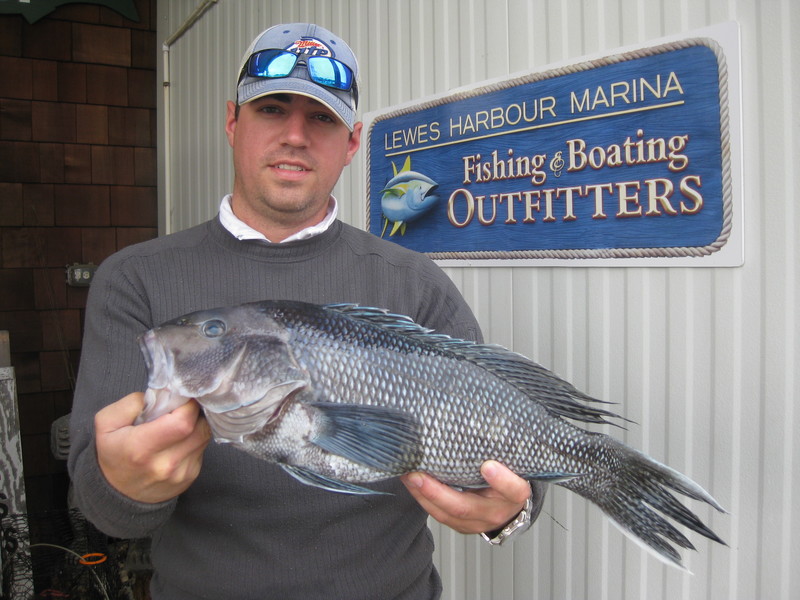Those of us who do not belong to a hunting club or have a lease to hunt on private land must be content to use the public hunting facilities provided by the state of Delaware. Fortunately, these areas are numerous and spread across the state.
With the shotgun deer season opening Friday, Nov. 13, and continuing until Nov. 21, our public lands will see maximum pressure, as this is the most popular time to hunt whitetails. There are a few things you can do to get an edge on the competitors in your chosen area.
Preseason scouting is always a good idea. The first thing to do is get a map from the Division of Fish and Wildlife of the areas you hope to hunt. These maps are available online.
Next, study the topography of the land looking for any natural elevations that allow you to see down into tax ditches or other low-lying areas. Deer will often use these as travel routes, especially once the shooting starts.
Another way to find a good place to set up for the hunt is to look for deer tracks and figure out where they are moving from and to. I start in the field where tracks are easy to see, and follow these along the edge until I find the place where deer enter the woods. Once I'm inside the woods, tracks can be hard to see, but trails are easy to spot. I follow a trail until it meets up with other trails, then look for a good ambush point.
In the old days, I would tie pieces of orange ribbon to trees to find my way back to the spot, but in today’s world, a handheld GPS or smartphone can lead you in with ease. I find the LED headlamps that fit over your hat another good use of new technology.
Once you have your spot, be sure to set up very early in the morning. You want to be sure no one else gets there first, and also, folks arriving later will drive the deer into the woods and perhaps, directly to your location.
If you plan to use a portable tree stand on public land, you will have to set it up on the morning of the hunt. You can take a chance and set up late in the day before you plan to hunt, but I would not advise this. Public land is just that, open to the public, and as all of us know, not everyone is as honest as we are.
Some public land has tree stands that are awarded by lottery on the day of the hunt or, in some cases, prior to the hunt. Check state parks and various wildlife refuges to find out the procedure for acquiring a stand. There are also stands made just for handicapped folks.
Wearing the proper amount of bright orange clothing is not only the law, it is a matter of survival when hunting on public land. Not everyone who shows up has the same experience with hunting as those of us who have been at it for years. Granted, bright orange clothing will not stop a slug, but at least you stand a better chance of being seen before the trigger is pulled. The sight of a deer can cause even seasoned veterans to make an error in judgement, but the flash of orange in the line of sight may just keep the hunter from taking the shot.
Once the deer is on the ground, it should be gutted as soon as possible. Skinning can wait until you are home or until the deer is dropped off at the butcher's.
The long-range weather forecast calls for daytime temperatures in the 50s with showers on opening day. This is not too bad, and I would expect the fields and woods will have many more hunters than deer. Just be careful out there. I would love to run your photo with a trophy buck and not see your face on the front page as the victim of a hunting accident.
Fishing report
Tog are still being caught at the Outer Wall and the Ice Breakers. The parking lot at the Lewes Boat Ramp was all but full on Saturday, and I am pretty sure most of those boats ended up toggled to the Wall.
Sea bass fishing has been good beyond the 20-Fathom Line. The Del-Jersey-Land Reef has been very productive with limits taken on most trips. Flounder, bluefish and even triggerfish have been caught at this site.
Surf fishing is still slow. Small blues, sharks and skates make up most of the catch on cut bait.
On the plus side, friends in New Jersey are catching rockfish in the surf with the best bite occurring after dark.
Eric Burnley is a Delaware native who has fished and hunted the state from an early age. Since 1978 he has written countless articles about hunting and fishing in Delaware and elsewhere along the Atlantic Coast. He and his wife Barbara live near Milton, Delaware. Eric can be reached at Eburnle@aol.com.



















































